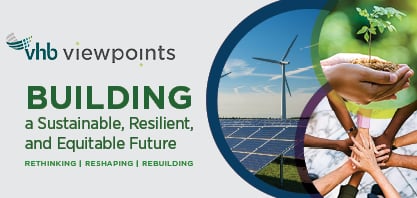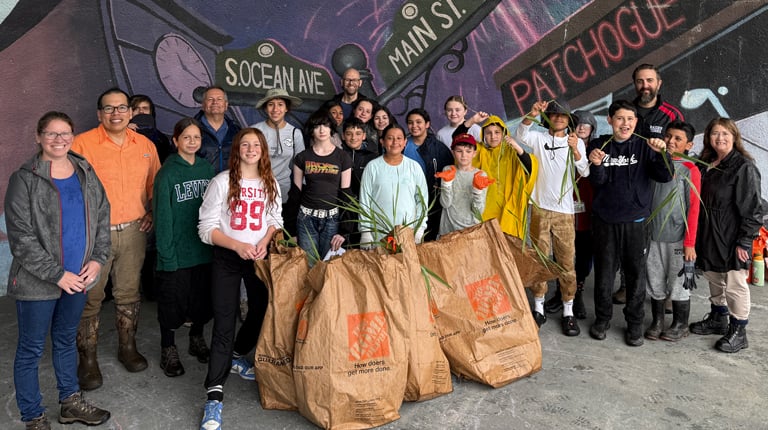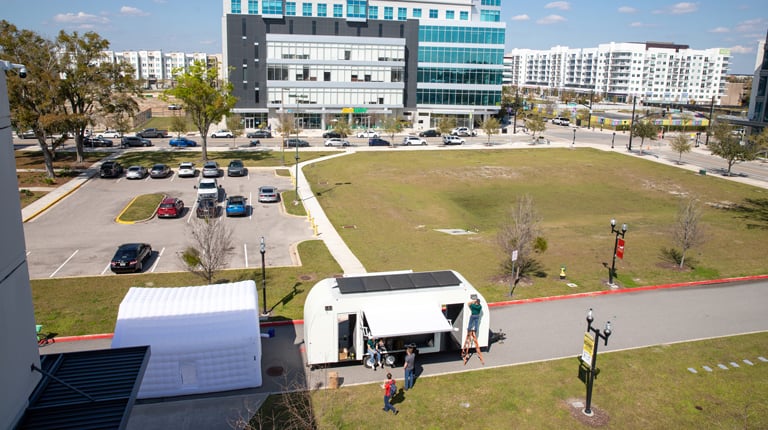Climate change is impacting our communities, the AEC industry, and our everyday lives. The next 10 to 25 years are critical to executing carbon-neutral policies and commitments. The year 2050—only 30 years away and still a part of many of our own lifetimes and that of our children and families—marks an important milestone in achieving carbon reductions necessary to keep the global climate stable. If we do not continue to make carbon reducing impacts now by cutting greenhouse gas emissions, irreversible consequences will occur within 30 years. The world’s average temperature will rise to a point of no return, making entire regions uninhabitable. Sea levels will also significantly rise, and many cities would disappear. Parts of the globe prone to reduced precipitation today will experience perpetual drought conditions and those areas seeing heavier rainfall will experience more frequent and severe flooding due to increased precipitation in storm events.
All by 2050, if we do not start to impact major change…now.
Understanding this urgency, and our role in taking action, VHB met with industry leaders to explore current and anticipated societal impacts of climate change, financial and policy trends that are taking shape, and issues related to climate equity. Guest speakers included Don Boesch, Professor Emeritus and President Emeritus at the University of Maryland Center for Environmental Science; Sue Reid, Senior Advisor at Global Optimism and the Finance Team Co-lead at COP26 High Level Champions; Jeff Eckel, chairman and chief executive officer of Hannon Armstrong, a leading investor in climate solutions; and Penn Loh, Senior Lecturer and Director of the Master of Public Policy Program and Community Practice at Tufts University’s Department of Urban and Environmental Policy and Planning.
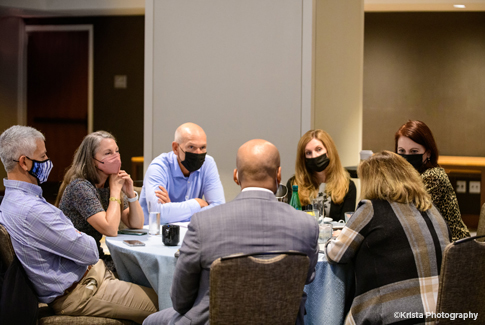
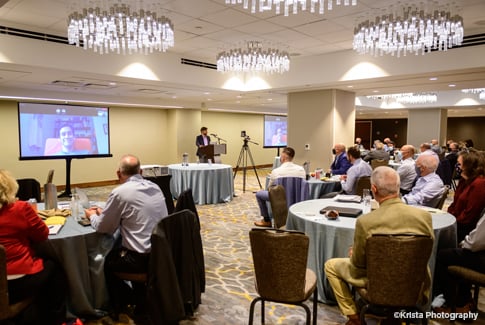
Key insights and takeaways shared during the conversation included:
- Climate change is not just an environmental issue. From wildfires in California, to hurricanes along the Gulf Coast and extreme flooding in the Northeast, we are seeing the physical results of climate change across the country—and globally. Beyond the environmental effects, there are also societal and economic impacts, especially for vulnerable populations that are often most affected despite contributing the least to the climate crisis. Climate justice acknowledges that climate change can have different social, economic, and public health impacts on different populations, and advocates to have inequities addressed head-on through long-term mitigation and adaption strategies.
- Mitigation and adaptation go hand-in-hand. The world we live in is rapidly evolving and it is important that we help implement changes where we can, while also preparing for the inevitable changes that are coming. While mitigation involves looking for ways to limit climate change (e.g., greater use of technologies that reduce greenhouse gas emissions such as renewable energy and electric vehicles), adaptation finds ways to proactively prepare for change (e.g., implementing resilient shoreline design to address sea level rise). We need to do both, and the steps we take today, such as rapidly advancing renewable energy projects, planning more efficient transportation systems, and assisting communities with vulnerability assessments are helping to plan for a more sustainable and resilient tomorrow—for generations to come.
- Technology will play an important part in meeting decarbonization goals. With countries and companies setting climate goals, technology will be critical to reducing, quantifying, and monitoring emissions. Promising advances have been made in Carbon capture and storage (CCS), a technology that involves capturing carbon dioxide from industrial processes, transporting it, and storing it deep underground. Green hydrogen, produced by splitting water molecules into hydrogen and oxygen via electrolysis, leverages technology to provide clean power for a variety of sectors, from manufacturing to transportation, with its only byproduct being water. Continued investment in green technologies will be needed to bring more solutions to the climate crisis.
- Global energy transition will require significant investment partnerships. Federal dollars will never be enough to solve the climate crisis. An issue as large as climate change will require private investment and partnerships to achieve Net Zero carbon emissions by 2050. We are starting to see key leaders in the finance sector, from commercial banks, pension funds, and insurers, come together to address this shared challenge with greater efficiency, with some of the largest financial institutions in the world embracing Net Zero targets ahead of and in response to the 2021 Intergovernmental Panel on Climate Change report.
- We must work together. Climate change is a shared challenge that requires a shared solution. Earlier this month, the 26th annual Conference of the Parties (COP) convened in Glasgow, Scotland, with more than 190 world leaders participating to address the issue of climate change. We are hopeful that this example of collaboration will also apply to state and local initiatives, and will send a strong signal to governments, the public sector, private investors, and consultants to work together for a common purpose.
There is an increasing urgency associated with investment in climate solutions. From rapid integration of renewable energy, to increased use of multimodal transport, to zero carbon buildings, the road to Net Zero will require collaboration and partnerships across industries, markets, and sectors. Ultimately, by working together, we can create a cleaner, greener, healthier future for everyone.
Sustainability serves as a foundational element of VHB’s practice and an integral part of our approach. As a Generational Company founded on stewardship, sustainability is also inherent in how we invest in our people—building our foundation for the future—so we can continue to provide our clients with results that shape our communities in meaningful ways.

